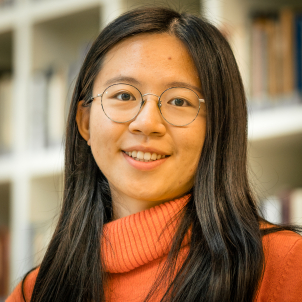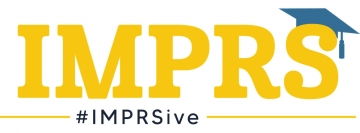Rong on Diversity
Name: Rong Ding
Department: Language and Computation in Neural Systems (MPI)
Research: Neural mechanisms underlying pronoun resolution
Started at the IMPRS: 2020
Nationality: Chinese
How did you come to pursuing your research topic in Nijmegen?
I was a foreign language (Indonesian) major at Peking (Beijing) University with a dual major in psychology. Getting to know research in both theoretical linguistics and neuroscience of language had stimulated my interest in bridging the two fields. To that end, I applied for a master’s program specialised in neuroscience and communication at University College London.
It was during my studies at UCL that I first learned of the MPI. My former colleagues there maintain close contact with Nijmegen-based researchers conducting fascinating research linking linguistics with neuroscience. I applied to join the Language and Computation in Neural Systems group when I learned of the group’s ambitious goal of bringing together linguistic, neurobiological, as well as computational constraints for forming speech processing theories.
What are some of the highlights of your doctoral life so far?
Besides academic work, I find it enriching that people in my group are diverse in terms of their life experience (age, country of origin, prior working experience, even language experience) as well. Diversity to me means that you feel free to share your thoughts and are able to get resonance as well as new insight from group members. The idea is working well among us -- we engage quite closely with each other in- and outside of the workplace. I also feel that encountering different perspectives helps me better understand myself as a researcher and as a person more generally. I have learned to place equal/more emphasis on personal growth, not just professional, and this has helped me create a more positive view of myself.
You feel the freedom to share your thoughts and are able to get resonance as well as new insight from group members.
What advice do you have for peers or those considering doctoral studies?
Given that work-life balance and productivity is a deeply personal matter, before embarking on your PhD journey, consider openly discussing with your supervisor(s) and collaborators the mode of interaction that suits you. Also, it might be a good idea to ask your supervisor for an evaluation from time to time.
Set clear deadlines for each step, especially during the set-up phase of a new project. Build a (bi)weekly meeting schedule for periods when you are most productive. Let your supervisors know how you prefer to work: for example, if you prefer to independently explore and implement things by yourself and only after that ask for their input, or rely on them to actively set some boundaries for your (possibly endless) exploration.



Share this page